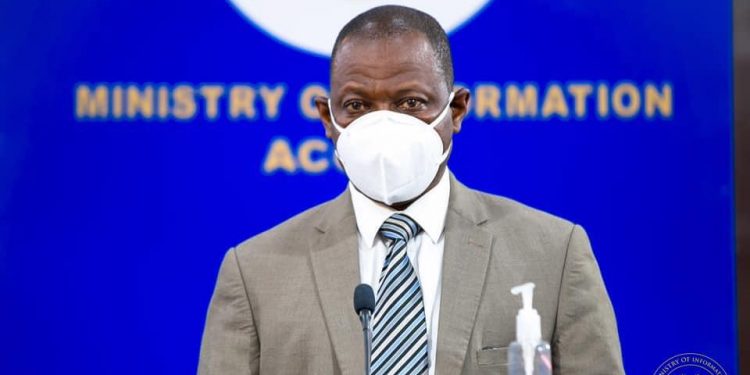Following the outbreaks of Ebola and Marburg Virus in neighboring Ivory Coast and Guinea, the Ghana Health Service (GHS) claims it has increased monitoring at the country’s borders.
Ivory Coast, Ghana’s immediate western neighbor, announced an Ebola case on Saturday, August 14, 2021, while the Marburg virus has claimed many lives in Guinea since the epidemic began on August 9, 2021.
According to the health management authority, it has written to all regional and district health directors throughout the nation, requesting that they implement Marburg and Ebola preparation and response systems as soon as possible in order to prevent the illnesses from entering Ghana.
“The Ghana Health Service and its partners have activated our systems since the onset. We have structures for all our rapid response at the borders, and they have been alerted with the fact about both Ebola and Marburg. Alerts have been sent to the regions and the district about the Marburg operation. The Ebola one will be leaving today, but we have started discussions with all our regional leaders, so they start preparations for that. The good thing is that some interventions that are currently in place can also be used to respond to this. Ghana has the capacity to test such cases at Noguchi for both the Ebola and Marburg disease. Public education and sensitization have already been initiated”, Director General of the Ghana Health Service, Dr. Patrick Kuma-Aboagye said at a media engagement on Sunday.
Despite the country’s land borders being closed, he said, monitoring on the country’s western border, in particular, would be enhanced.
“We will increase public health monitoring at our borders, particularly along the western border, where we have Ivory Coast and nations where the virus has been identified. Because the borders are now closed, we must guarantee that those who want to enter illegally are subjected to the appropriate inspections. As a result, we’re now working with the Immigration Service to have these issues resolved. We’re providing equipment to our port health personnel so they can screen and investigate.
Marburg virus is a haemorrhagic fever virus belonging to the Filoviridae family and belonging to the species Marburg virus.
The Marburg virus is thought to be extremely contagious and belongs to the same family as Ebola, according to health specialists.
The Marburg virus is transferred between humans via the passage of body fluids. It is transmitted to humans by fruit bats.
Headache, fever, muscular aches, vomiting blood, and bleeding are all signs of this serious, sometimes deadly disease.
Seven individuals died in the first-ever Marburg epidemic in Germany in 1967.
Previous outbreaks and sporadic cases have been recorded in Africa, according to the World Health Organization (WHO), in Angola, the Democratic Republic of the Congo, Kenya, South Africa, and Uganda.
With the last big epidemic in Angola in 2005, cases are very uncommon.
According to the World Health Organization, the virus killed more than 200 individuals in Angola in 2005, making it the worst epidemic on record.
Preventive measures include:
Avoid contact with symptomatic people’s bodily fluids (urine, saliva, sweat, faeces, vomit, breast milk, and sperm).
Hand hygiene should be practised on a regular basis, such as handwashing with soap under running water or using an alcohol-based sanitizer.
Handle things that have come into touch with an infected person’s bodily fluids with caution.
Avoid coming into touch with dead corpses, including participating in funeral or burial rites for Marburg cases suspected or confirmed.
If you get a fever (body temperature of 38°C or higher) or other symptoms like severe headache, tiredness (feeling extremely tired), muscular pain, vomiting, diarrhoea, stomach discomfort, or unexplained bleeding or bruises, seek medical help right once (at the closest health facility).
Source: CITINEWSROOM

























